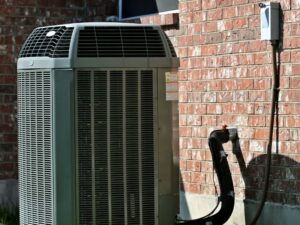5 Things You Never Knew About Geothermal Heating
Geothermal heat pumps, also known as ground-source heat pumps, transfer heat from the earth to a building, and vice versa. They offer a clean, sustainable, and energy-efficient way to keep your home in Bunn, North Carolina, comfortable. Here are some interesting facts you may not know about geothermal heating.
1. Geothermal Heating Relies On a Renewable Energy Source
Geothermal energy comes from inside the earth. If you’ve ever enjoyed bathing in natural hot springs, you’ve experienced geothermal energy. By definition, renewable energy constantly replenishes itself. It makes sense to tap into this energy source to heat and cool buildings. A geothermal heat pump offers an energy-efficient heating and cooling solution for your home.
The word “geothermal” is derived from the Greek words “geo,” meaning earth, and “thermos,” meaning heat. Because the ground beneath the earth’s surface maintains a consistent temperature, geothermal heating is an excellent source of renewable energy.
2. It Works Using an Underground Loop System
Geothermal heating uses an underground looped piping system. The heat exchange takes place in these pipes. Installation requires some digging in your yard to lay the pipes, but once they are installed and your lawn grows back, no one will know that they are there. Loops can be installed horizontally or vertically and in a closed or open system.
Horizontal vs. Vertical Loops
Horizontal loops require a large ground space as they are usually buried in long trenches. The bigger your house, the more loops you’ll need to heat it. Vertical loops are used for smaller properties. To install vertical loops, your HVAC contractor will drill holes deep into the ground and insert the pipes into these holes.
Closed vs. Open Loop Systems
Closed loop systems run refrigerant fluid through the pipes in the ground to your home. They recirculate the same fluid continuously, eliminating water wastage.
You can only install an open loop system if you live near a body of water like a well, river, or lake. The water is pumped to the heat pump unit, and once the cycle is complete, the water flows back into the water source.
3. You Can Use Geothermal Heat Pumps in Cold Climates
There is a myth that heat pumps are only suited to climates with mild winters. The truth is that this only applies to air-source heat pumps that draw heat from the air. This is because less heat is available in the air during colder seasons, thereby reducing an air-source heat pump’s efficiency.
On the other hand, geothermal heating relies on heat from the ground which remains stable, usually at around 45 to 55 degrees Fahrenheit. No matter how cold the outside air gets, the earth’s temperature remains consistent. This means the heat your home receives remains consistent throughout the year.
4. Geothermal Heat Pumps Are Built to Last
Geothermal heat pumps cost more to install than traditional HVAC systems. However, these systems last a long time. You can expect the heat pump unit to last at least 25 years, and the underground pipes can last 50 years or more.
Purchasing a geothermal heat pump is a long-term investment. However, they are up to 65 percent more efficient than traditional HVAC units and will save on energy costs in the long term. Since geothermal heat pump systems have such excellent longevity, you’ll continue saving money and conserving the earth’s resources for many years to come.
5. Geothermal Energy Is Gaining Popularity Worldwide
Currently, 25 percent of Europe’s electricity comes from geothermal energy. It is the main source of electricity in Iceland, with 87 percent of homes heated by geothermal energy. In the United States, nearly one million geothermal heat pumps have already been installed in homes, and around 60,000 new geothermal heat pumps are installed each year. It is forecast that by 2050, geothermal energy will account for up to 10 percent of the energy used in the United States.
If you’re considering installing a heat pump in your Franklin or Wake County home, speak to us at Alford Mechanical Heating and Air Conditioning to choose the type of heat pump that best suits your needs. Give us a call at 919-246-5265.
Image provided by Shutterstock
You May Also Like

How Proper Humidity Levels Improve Comfort and Health in Winter in Wake Forest, NC
Winter in Wake Forest often brings cool temperatures and dry indoor air. When the heat runs day after day, moisture in the… Continue Reading How Proper Humidity Levels Improve Comfort and Health in Winter in Wake Forest, NC…

Why Heat Pumps Are Ideal for Mild Winters in Wake Forest, NC
Homeowners in Wake Forest, NC know that winters in the region are typically mild, with only the occasional freeze. That’s why more… Continue Reading Why Heat Pumps Are Ideal for Mild Winters in Wake Forest, NC…

Why Indoor Air Quality Still Matters in Cooler Months in Wendell, NC
As temperatures drop in Wendell, NC, most people close their windows and rely more on heating systems. While that helps keep your… Continue Reading Why Indoor Air Quality Still Matters in Cooler Months in Wendell, NC…
